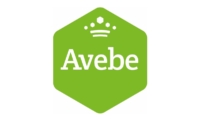The ‘Nutrition Targets’ set by the World Health Organization and the ‘Sustainable Development Goals’ defined by the United Nations emphasize the urgency to remedy the malnutrition of still too many people. Sustainable ways to do so include the transition from animal to plant-based proteins, e.g. those that can be sourced from beans, peas and lentils, all known for their richness in proteins. In addition, proteins or other valuable substances can be recovered from streams previously considered as waste, e.g. the wash water produced during the processing of potatoes and sugar beets. The added benefit is a much more sustainable practice that also adds to the product portfolio of the manufacturer.
The Dehydration theme focusses on two aspects closely related to these issues. First, given the low protein content of the streams mentioned above, how to achieve the required separation / concentration?
To obtain proper starting materials for the food industry, effective water removal and separation is mandatory. Secondly, what is the effect of the extent of dehydration/drying as well as the particular technology used, on protein functionality? Is it feasible to steer functionality toward different applications in food using smart separation concepts? For dairy proteins, for example, it is known that the process conditions (e.g. temperature) used for their isolation/purification greatly determine their technological functionality, and it has been suggested that this relates to the degree of protein unfolding. To address these questions, different separation technologies will be explored. The two (low temperature) dehydration technologies already represented in the Dehydration theme, Eutectic Freeze Crystallisation and Super Critical CO2, are well suited especially for food products containing heat-sensitive proteins.




